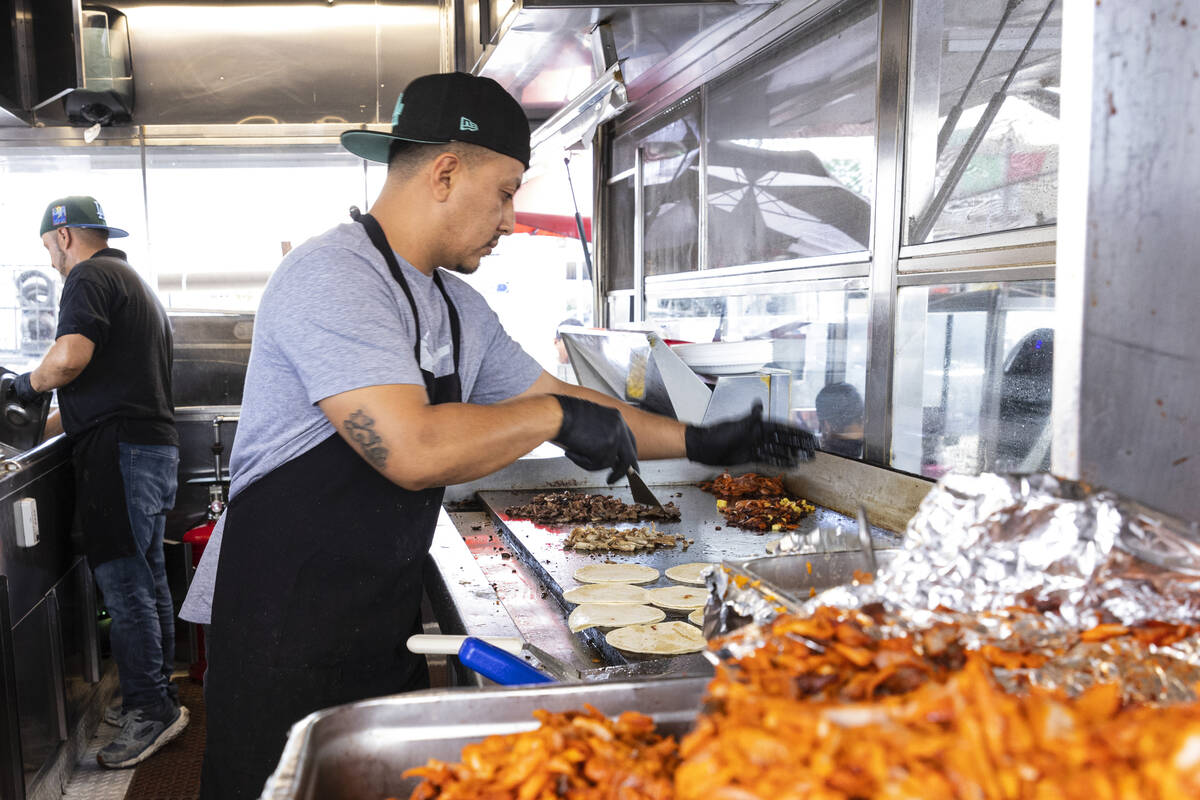Coming soon to Las Vegas: Licensed street food vendors
Food vendors can be spotted on valley streets and neighborhoods, selling snacks such as corn on the cob or chopped up fresh fruit from their mobile stands.
The practice was illegal until Senate Bill 92 was passed at the 2023 Nevada Legislature.
In the city of Las Vegas, food vendors may soon be able to come out of the shadows to get permitted and regulated.
The city is in the process of drafting an ordinance to comply with state law and follow Clark County’s lead in legitimizing the businesses.
On Wednesday, city officials outlined the groundwork needed before the City Council can vote on an ordinance, tentatively by late December.
Darcy Adelbai-Hurd, the city’s business licensing manager, said Wednesday that it wasn’t clear how many vendors currently operate within city limits, but said the ordinance would not limit how many are licensed.
The city would license the businesses, and the Southern Nevada Health District would regulate them.
City officials are in the middle of conducting a business impact study to determine how the ordinance might affect the city.
The bill is slated to be introduced to the City Council in mid-November, sent to the recommending committee in early December and set for a tentative final vote on Dec. 20.
For now, the city is holding informational and listening sessions, with Wednesday being the first through an online seminar.
Clark County Commissioners earlier this month voted to approve the county’s ordinance, bringing the jurisdiction in line with state law.
Rules and licensing
Unincorporated Clark County vendors will be banned from operating within 1,500 feet of a resort hotel, or large event spaces, such as Allegiant Stadium.
The same distances would apply to business owners in Las Vegas and would include 1,000-foot separations from the Fremont Street Experience, and the downtown Las Vegas entertainment district.
The same distances would apply to non-resort casinos, school properties while classes are ongoing, and public parks and recreational centers.
There would be a 500-foot distance restriction from farmers markets, and special events unless specifically permitted.
Vendors would not be able to operate within 150 feet from restaurants while the locales are open.
While they could operate inside residential neighborhoods, vendors would need to move around and not stay in a single spot, the city said.
Times of operation would be limited from 7 a.m. to 11 p.m., the city said.
Business licenses would cost $150 a year, with a one-time application fee of $50, the city said.
The health district would regulate the sanitary regulations.
Vendors would need a permit from the health department, which would cost about $900 the first year, with subsequent $300 yearly renewals, said Nikki Burns-Savage, supervisor with the health district’s specialized foods department. She added that there would be a payment plan option.
Initial permitting will be granted under an already-established set of regulations, but the health district will draft specific rules by 2025, she said.
Each employee also would be required to obtain a health card, and the food could not be prepared at home, said Burns-Savage.
Vendors could buy and sell the food same-day or rent a commissary space, she said.
Meanwhile, the Secretary of State’s office on Wednesday announced appointments to the Task Force on Safe Sidewalk Vendors. Under state law, the office was tasked with providing updates to future legislatures.
The collective comprises local and state officials, an advocate, vendors and a Las Vegas police representative.
Contact Ricardo Torres-Cortez at rtorres@reviewjournal.com.


















